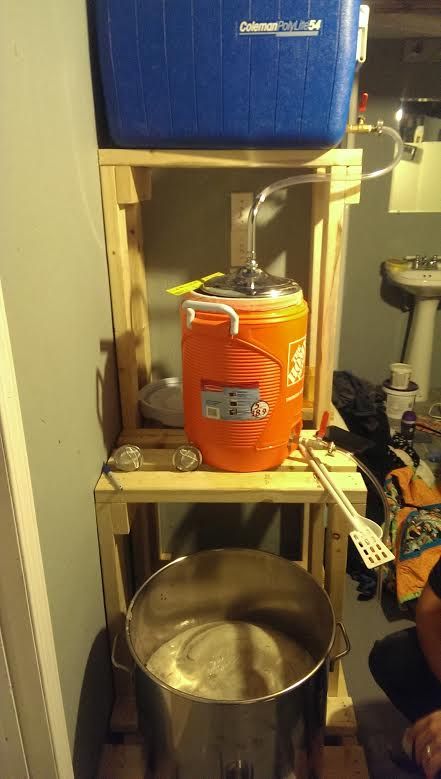guitarguy6
Well-Known Member
Hi guys, I recently made the switch to AG brewing and am getting poor efficiency. I think it's due to the fact that my mash temps aren't being read correctly. I'm using a Homedepot 5Gallon cooler that I converted for the mash tun and was wondering what you guys recommend for monitoring the mash temp. I'm using an electric food thermometer that I picked up at Walmart for $20 and am doubting it's accuracy. http://www.walmart.ca/en/ip/stainles-steel-thermometer/6000147014497 I ordered this thermopen from amazon and am waiting to receive it http://www.amazon.ca/gp/product/B0021AEAG2/?tag=skimlinks_replacement-20 .
Most of my batches should have an OG of about 1.055 and I'm getting around 1.04 - 1.045. I mash for 1 hour at 152-154 for 60 min and then sparge with 170 water for at least 30min but it's usually around 45 min. According to my current thermometer I lose at most 2F during the hour. What's odd is on my last batch I had my mash at 153 and at the end of the hour it read 155F I have a HLT that connects to a big circle shower head that fits exactly over my mash tun so I get pretty even coverage. I have a 19 gallon kettle with a 4500Watt blichmann boilcoil that I just purchased and usually do 60min boils. I'm taking my brix reading with this refractometer http://www.ebay.ca/itm/221503392276?ssPageName=STRK:MEWNX:IT&_trksid=p3984.m1497.l2649 Does the temperature of the wort sample matter when taking the reading?
I have a HLT that connects to a big circle shower head that fits exactly over my mash tun so I get pretty even coverage. I have a 19 gallon kettle with a 4500Watt blichmann boilcoil that I just purchased and usually do 60min boils. I'm taking my brix reading with this refractometer http://www.ebay.ca/itm/221503392276?ssPageName=STRK:MEWNX:IT&_trksid=p3984.m1497.l2649 Does the temperature of the wort sample matter when taking the reading?
Example of last 5Gallon recipe: 6KG 2 Row, 0.45KG Munich, 1oz Chocolate Malt, 1oz Centennial 60min, 1oz Cascade 15min, 1oz Cascade 5min
Pic of current setup

Most of my batches should have an OG of about 1.055 and I'm getting around 1.04 - 1.045. I mash for 1 hour at 152-154 for 60 min and then sparge with 170 water for at least 30min but it's usually around 45 min. According to my current thermometer I lose at most 2F during the hour. What's odd is on my last batch I had my mash at 153 and at the end of the hour it read 155F
Example of last 5Gallon recipe: 6KG 2 Row, 0.45KG Munich, 1oz Chocolate Malt, 1oz Centennial 60min, 1oz Cascade 15min, 1oz Cascade 5min
Pic of current setup

Last edited by a moderator:


